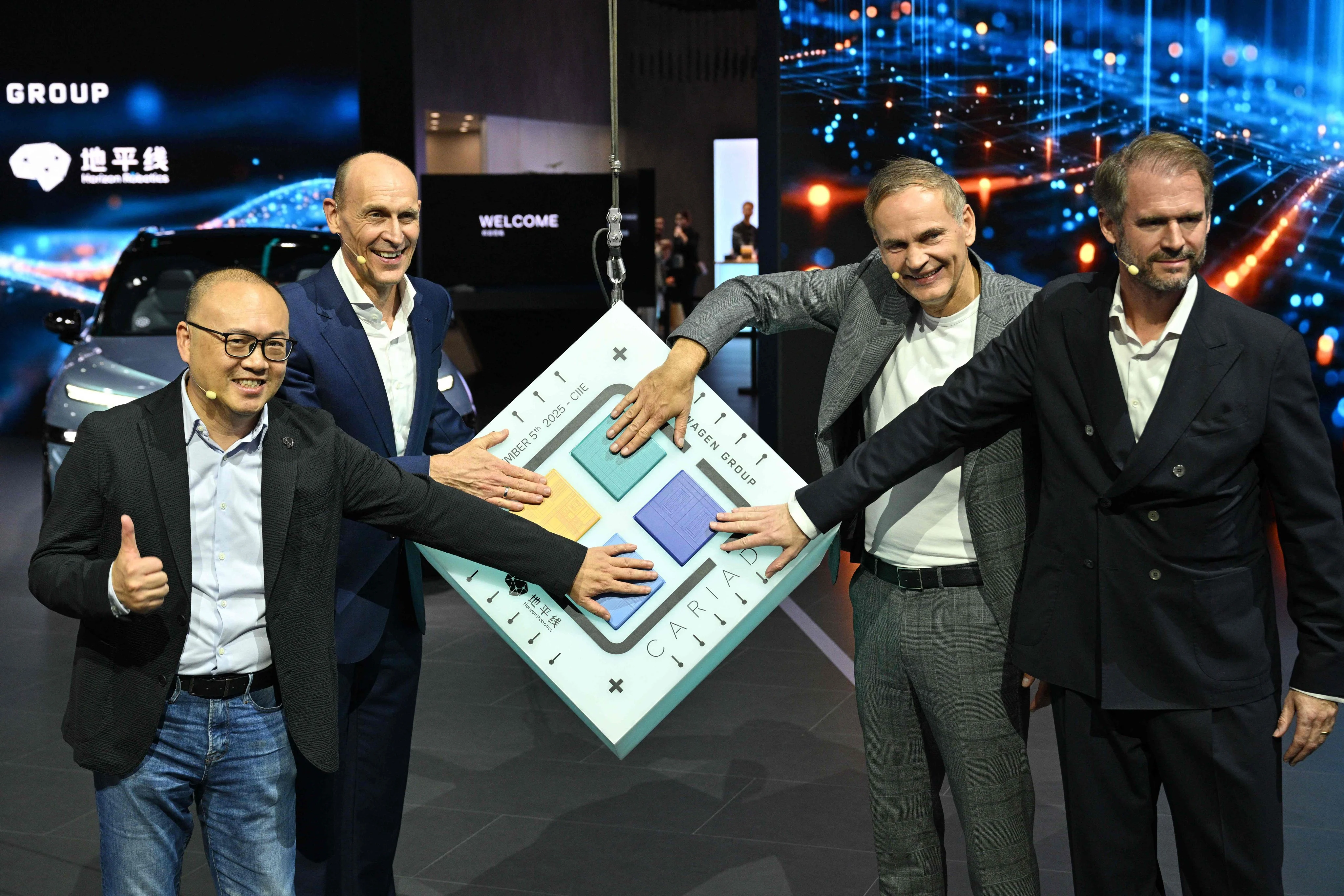Copyright scmp

Volkswagen Group plans to develop its own advanced semiconductors in China to power its locally made semi-autonomous vehicles, ramping up efforts to regain ground in the world’s largest car market amid heightened competition. The German carmaker on Wednesday said Carizon – a venture it jointly owned with Horizon Robotics, a designer of artificial intelligence integrated circuits – would develop a system-on-a-chip (SoC) that would be delivered in the next three to five years. “We are accelerating and deepening the implementation of our ‘In China, for China’ strategy – moving beyond localised production to mastering the core technologies that shape tomorrow’s mobility,” said Ralf Brandsatter, VW China’s chairman and CEO. “The Volkswagen chip will be developed with our Chinese customers at heart.” The SoC – designed to process data generated by an autonomous vehicle’s cameras and sensors – would have computing power of between 500 and 700 tera operations per second (TOPS) – a unit of measurement for the number of trillions of operations it can perform in one second. That would make the chip nearly on par with Nvidia’s latest Thor processor that can perform 700 TOPS. Volkswagen’s semiconductor initiative reflected the carmaker’s commitment to further invest in the world’s largest electric vehicle (EV) market. “Turning our vehicles more intelligent is one of VW’s core competences in China,” Carizon CEO Frank Han told reporters at Wednesday’s media briefing on the sidelines of the China International Import Expo. “We are cementing this belief and we will consolidate our foothold here.” VW has been losing its market share to Chinese rivals over the past two years, as more domestic consumers opt for battery-powered vehicles on the back of government subsidies and steep discounts. A perennial market leader in China’s car industry since it established a Shanghai-based joint venture in 1984, VW in 2023 was overtaken by BYD, China’s EV king, amid a surging domestic adoption of electric cars. The German marque reported sales of 2.9 million units on the mainland last year, down 9.5 per cent from 2023. The company’s new chip will be used to power the company’s third-generation technology for building EVs in China, known as CEA. Han said 80 per cent of VW’s cars sold in China by 2030 would be developed on the CEA architecture. Other Chinese EV assemblers, like Xpeng and Nio, are also developing their own smart-driving chips to enhance their competitiveness in the fast-growing market. Xpeng’s Turing chip would be used in all its production models, CEO He Xiaopeng said earlier this year. The chip could also power flying cars and robots being developed by Xpeng’s affiliated companies, he added. VW owns a 5 per cent stake in Xpeng and the two carmakers are jointly developing new vehicles that will debut next year in China. EVs’ level of intelligence has become the new battleground for carmakers in China. Two out of three new cars sold on the mainland in 2025 would have Level 2 autonomous driving capability or above, according to Zhang Yongwei, general secretary of China EV100, a non-governmental organisation whose members are most of the top executives in the country’s EV industry.



